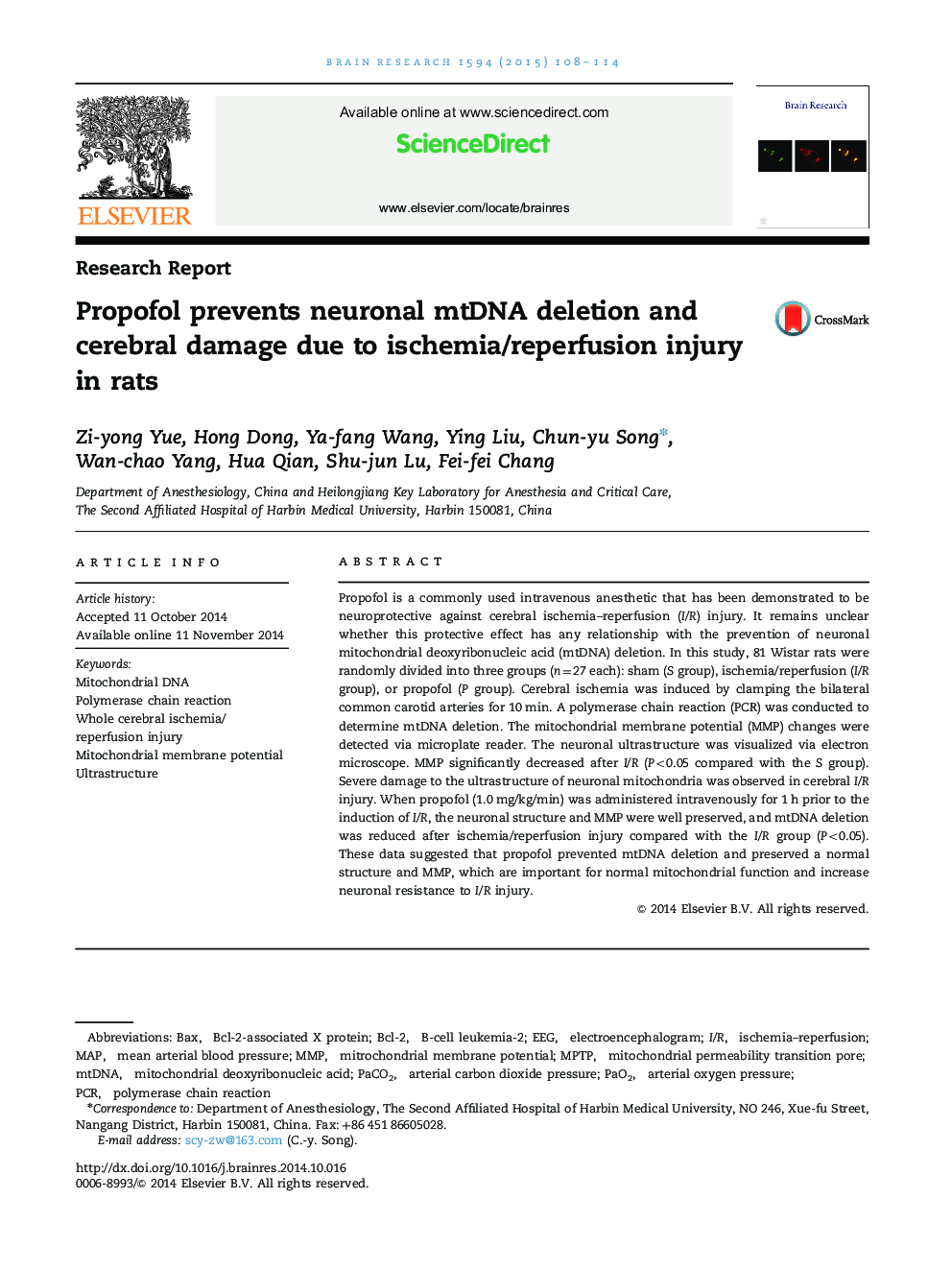| Article ID | Journal | Published Year | Pages | File Type |
|---|---|---|---|---|
| 4324012 | Brain Research | 2015 | 7 Pages |
•Propofol has neuroprotective effects.•Can prevent the neuronal mtDNA deletion.•Can reduce the damage of neuronal ultrastructure.•Can alleviate the MMP damage induced by I/R injury in rats.
Propofol is a commonly used intravenous anesthetic that has been demonstrated to be neuroprotective against cerebral ischemia–reperfusion (I/R) injury. It remains unclear whether this protective effect has any relationship with the prevention of neuronal mitochondrial deoxyribonucleic acid (mtDNA) deletion. In this study, 81 Wistar rats were randomly divided into three groups (n=27 each): sham (S group), ischemia/reperfusion (I/R group), or propofol (P group). Cerebral ischemia was induced by clamping the bilateral common carotid arteries for 10 min. A polymerase chain reaction (PCR) was conducted to determine mtDNA deletion. The mitochondrial membrane potential (MMP) changes were detected via microplate reader. The neuronal ultrastructure was visualized via electron microscope. MMP significantly decreased after I/R (P<0.05 compared with the S group). Severe damage to the ultrastructure of neuronal mitochondria was observed in cerebral I/R injury. When propofol (1.0 mg/kg/min) was administered intravenously for 1 h prior to the induction of I/R, the neuronal structure and MMP were well preserved, and mtDNA deletion was reduced after ischemia/reperfusion injury compared with the I/R group (P<0.05). These data suggested that propofol prevented mtDNA deletion and preserved a normal structure and MMP, which are important for normal mitochondrial function and increase neuronal resistance to I/R injury.
